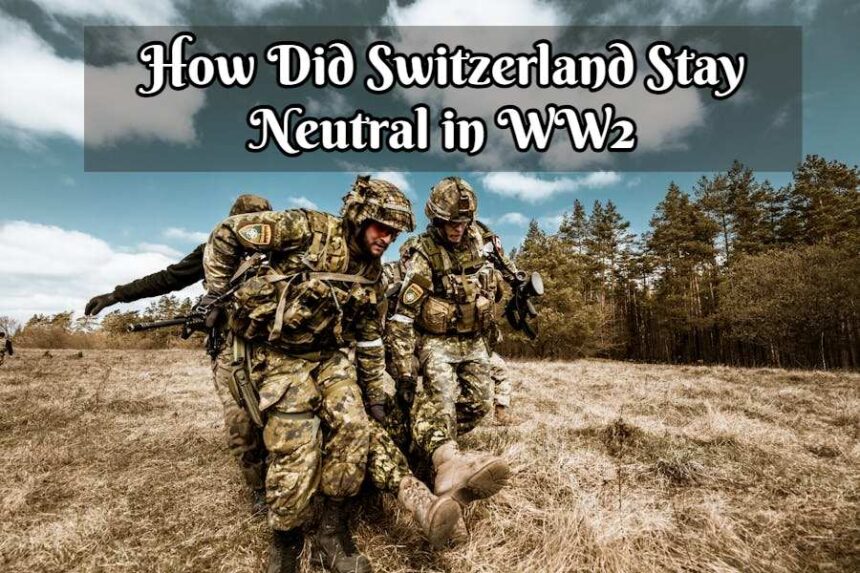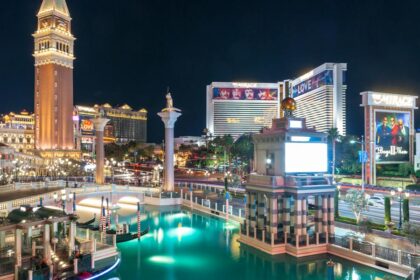Switzerland maintained its neutrality in World War II through a combination of military preparedness, international treaties, and economic collaboration with all belligerents. Its geopolitical strategic location and strong defense system discouraged invasion.
Switzerland has historically been synonymous with neutrality, a stance that became particularly significant during World War II. With the tumult of global conflict escalating around them, the Swiss government implemented a rigorous policy of military deterrence to preserve their non-partisan status.
This approach relied on mobilizing a substantial militia army and fortifying their border defenses, effectively making the cost of invasion unpalatably high for the Axis or Allied powers. The Swiss also leveraged their financial expertise, offering banking services that handled transactions for countries on both sides of the conflict, thus establishing themselves as indispensable in international trade and finance. This shrewd combination of defensive posturing and economic interdependence enabled Switzerland to emerge from the ashes of war with its sovereignty and neutrality intact.
Switzerland’s Geographic Advantage
During World War II, Switzerland maintained its neutrality. This feat had much to do with its unique geography. Its natural features acted as a formidable shield, discouraging large-scale invasions. Let’s delve deeper into how the landscape provided the Swiss an edge.
Natural Barriers And Defensive Terrain
Switzerland is home to rugged landscapes that act as natural defenses. Major mountain ranges, like the Alps, create barriers that are tough for armies to cross. The terrain is steep, harsh, and often snow-covered, making military movements difficult.
- Jura Mountains to the north-west provide additional protection.
- Dense forests add to the difficult terrain for potential invaders.
- Lakes and rivers create natural moats around many areas.
Fortification Of Borders And Alps
The Swiss didn’t rely on nature alone. They built strong defenses too. The country fortified its borders with bunkers, gun emplacements, and explosive obstacles. They prepared the Alpine passes with artillery positions, ready to halt any advance.
| Region | Defensive Measures |
|---|---|
| Alps | Reinforced artillery, anti-tank barriers |
| Border Areas | Bunkers, mines, bridge demolition charges |
With these defenses in place, Switzerland turned its natural barriers into impenetrable fortresses. They ensured scenes of World War II battles stayed far from Swiss cities. Switzerland stood like an unconquerable land amidst war-torn Europe.

Credit: www.blinkist.com
Economic Interdependence And Neutrality
Situated at the heart of Europe, Switzerland’s story of neutrality during World War II is tied intimately to economics. The country’s survival hinged on smart diplomacy, a strong financial system, and critical trade connections. Let’s dive into the pivotal role of banking and trade, and how these factors anchored Switzerland’s neutral stance amidst global conflict.
Role Of Banking And Finance
Switzerland’s banking system was world-renowned for its security and discretion. As war loomed over Europe, Switzerland became a financial haven for assets and gold, attracting funds from governments, businesses, and individuals. Such financial entwinement made Swiss banks indispensable to all parties involved in the war.
- Guardian of assets from around the world.
- Safety and stability in an unstable era.
- Confidentiality that ensured trust from international clients.
Trade Balance With Warring Nations
Switzerland maintained a delicate trade balance with warring nations. Its economy was intertwined with its neighbors. Swiss goods were crucial, and a halt in trade would have had dire consequences for all.
| Country | Exports | Imports |
|---|---|---|
| Germany | Machine parts, chemicals | Coal, iron |
| France | Watches, textiles | Wine, luxury goods |
| Italy | Machinery, metals | Fruits, olive oil |
By trading with Axis and Allied Powers, Switzerland was imperative to both sides. This interdependence was a key element of its strategic neutrality during World War II.
- Essential trade partner to conflicted nations.
- Supplied and received goods despite the war.
- Avoided embargo, ensuring economic stability.
Diplomatic Maneuvering
Switzerland’s story of neutrality in World War II is a tale of masterful diplomacy. The nation walked a tightrope, balancing relations with major powers. They did so through skilled negotiating and hosting critical international discussions.
Negotiating With Powers
Switzerland’s negotiators were adept at playing the long game. They understood the landscape of the war and the motivations of each country involved. Engaging in continuous dialogue, Swiss diplomats sent clear messages. They insisted on the country’s long-standing tradition of neutrality. These assurances often took place behind closed doors. Swiss diplomats achieved their goals without appearing to favor any side.
Hosting International Discussions
Serving as the epicenter for diplomacy, Switzerland offered neutral ground. Here, warring nations could engage in talks. Hosting such events, Switzerland cemented its neutral role. This act helped to maintain a delicate balance of peace within its borders. The country provided a safe haven for discussions. This move was strategic to uphold neutrality in a conflict-divided Europe.

Credit: www.bostonglobe.com
Military Preparedness
Military Preparedness was a cornerstone in Switzerland’s ability to maintain its neutrality during the storm of World War II. Nestled amid powerful warring states, the Swiss defensive approach relied heavily on a well-trained and ever-ready military force. This was no accident but the result of meticulous planning, strategic foresight, and a deep-seated commitment to independence. Understanding the specifics reveals how this small country defended its borders against overwhelming odds.
Mandatory Military Service
At the heart of Swiss defense was Mandatory Military Service. Every Swiss male was required to serve in the military, ensuring a constant supply of trained forces. This policy meant that a significant percentage of the population was combat-ready at any time. Consider these key statistics:
- Duration: Military service spanned years, from initial training to periodic retraining.
- Training: Rigorous and regular, keeping skills sharp and response times quick.
- Reserves: A capable reserve force could mobilize quickly in a crisis.
Key Strategies And Defense Systems
Swiss strategic planning hinged on a multi-faceted defense strategy. Notably, they fortified their terrain, making any invasion a logistical nightmare for potential aggressors. Here’s how the Swiss maintained their impregnability:
| Strategy | Implementation |
|---|---|
| Natural Barriers | Utilized mountains and passes to their advantage. |
| Fortifications | Built extensive bunkers and artillery positions. |
| Air Defense | Invested in anti-aircraft defenses and fighter jets. |
| Demolition Plans | Prepared to destroy vital infrastructure if needed. |
By staying prepared, Switzerland sent a clear signal: invasion would be a perilous endeavor. Each citizen-soldier was a guardian of neutrality, contributing to a deterrent so robust it kept the tumult of World War II at bay. Switzerland demonstrated that a nation’s security could be achieved not by offensive prowess, but through a state of readiness and a well-planned defense.
Cultural Influence And Identity
The cultural influence and identity of Switzerland played pivotal roles during World War II. The nation’s unique cultural tapestry helped it maintain a stance of neutrality amid tension. Cultural finesse, along with a strong sense of identity, steered Switzerland away from the temptations of taking sides. Let’s explore how the promotion of Swiss culture and internal unity strategies contributed to this neutrality.
Promotion Of Swiss Culture
Switzerland’s commitment to cultural promotion served as a diplomatic shield during the conflict. Swiss authorities actively showcased their rich cultural heritage. This included classical music, fine arts, and literature. It provided a common ground for respect among warring countries.
International respect for Swiss contributions to the arts played a part. Celebrated figures like Hermann Hesse and Carl Jung were Swiss citizens. Their work had worldwide recognition and esteem.
Festivals and cultural events continued throughout the war. These gatherings fostered a sense of normalcy and sovereignty. It kept the country’s morale high and image intact.
Internal Unity And Propaganda
To maintain neutrality, Switzerland also focused on internal unity and effective propaganda. Messaging centered on national solidarity. It reinforced the importance of staying out of the conflict.
Propaganda campaigns aimed at the Swiss population employed various media. Radio broadcasts, posters, and films all spread the message. The central theme was the preservation of the Swiss way of life against foreign influence.
- Posters depicted Switzerland as a peace-loving nation.
- Movies showcased Swiss heroes and the beauty of the Swiss landscape.
- Radios aired stories of Swiss resilience and autonomy.
These crucial efforts in the realms of culture and propaganda solidified a unified national stance. They kept Switzerland’s neutrality intact throughout a time of global upheaval.

Credit: www.amazon.com
International Laws And Conventions
International laws and conventions played a pivotal role in shaping Switzerland’s neutrality during World War II. The small Alpine nation navigated the tumultuous war years by adhering strictly to established international regulations that recognized and protected its neutral position. Understanding these legal frameworks is key to grasping how Switzerland maintained peace within its borders amid worldwide conflict.
Role Of Geneva Conventions
Switzerland’s neutrality was heavily influenced by the Geneva Conventions. These are a series of treaties concerning the treatment of civilians, prisoners of war, and soldiers incapable of fighting. As the birthplace of these crucial international laws, Switzerland had a duty to uphold them during wartime. Remarkably, the country served as a safe haven and mediator, greatly due to these conventions.
The Geneva Conventions comprised clear rules on wartime conduct, which Switzerland followed meticulously to maintain its neutral stance. These regulations included:
- Protection of wounded soldiers
- Aid to civilian populations
- Humane treatment of prisoners of war
Switzerland’s Function In International Red Cross
The International Red Cross is another crucial organization tied to Swiss neutrality during World War II. Established in Geneva, this institution symbolizes humanitarian aid and impartiality in armed conflicts. Switzerland’s active involvement with the Red Cross reinforced its non-combatant status while contributing to global relief efforts.
Key activities Switzerland facilitated through the Red Cross included:
- Managing communications between prisoners of war and their families.
- Supervising the transport and care of war casualties.
- Distributing relief supplies to populations in need, irrespective of their nation.
These critical functions supported by Switzerland upheld both the spirit and the letter of international law, thereby cementing the country’s position as a beacon of neutrality and humanitarian aid.
Frequently Asked Questions Of How Did Switzerland Stay Neutral In Ww2
How Has Switzerland Remained Neutral?
Switzerland has maintained neutrality by not joining military conflicts and avoiding alliances that might draw it into war. Its policy of neutrality is respected internationally and is also enshrined in its national laws, reinforcing its non-participatory stance in armed conflicts.
How Did Switzerland And Sweden Stay Neutral In Ww2?
Switzerland maintained neutrality by mobilizing its armed forces and fortifying its borders. Sweden avoided conflict through diplomatic efforts and economic concessions to both Allied and Axis powers.
Why Did Germany Invade Norway But Not Sweden?
Germany invaded Norway in 1940 to secure shipping routes and ensure access to Swedish iron ore. Sweden remained neutral and cooperative, allowing Germany to use its railways for transportation, thus avoiding direct invasion.
How Did Spain Stay Neutral In Ww2?
Spain maintained neutrality in WWII due to strategic nonalignment and Franco’s regime focusing on domestic stability post-Spanish Civil War. Diplomatic pressure and resource scarcity further influenced Spain’s decision.
Conclusion
Switzerland’s enduring neutrality in World War II was no small feat. A blend of strategic military preparation and international diplomacy played pivotal roles. By maintaining a strong defense and leveraging their economic position, the Swiss successfully navigated the wartime turmoil.
Their story offers invaluable lessons on the art of remaining impartial amidst global conflict.




